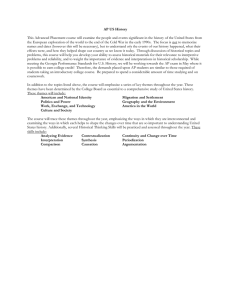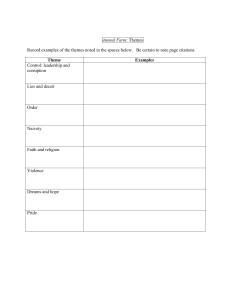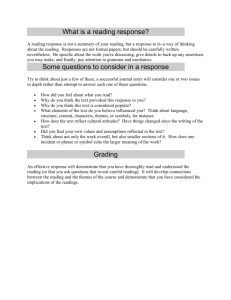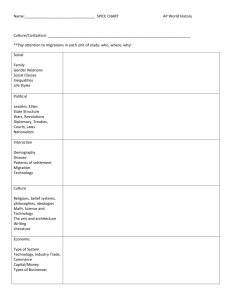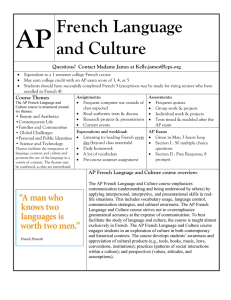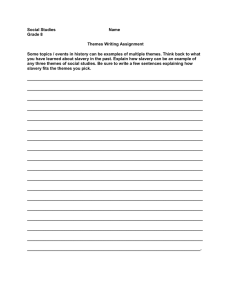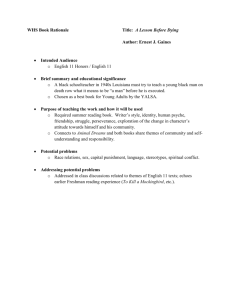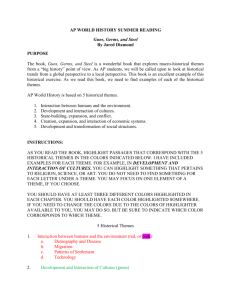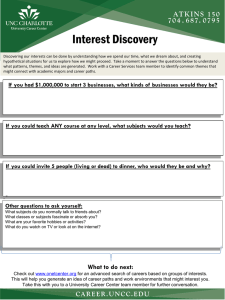Five Course Themes
advertisement
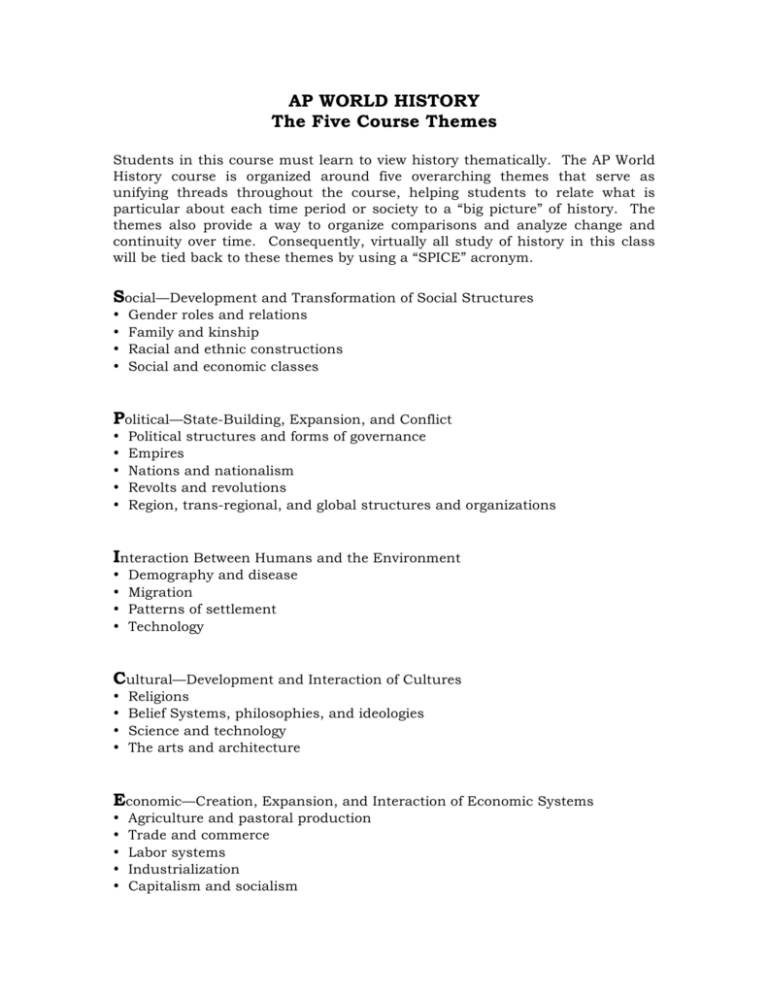
AP WORLD HISTORY The Five Course Themes Students in this course must learn to view history thematically. The AP World History course is organized around five overarching themes that serve as unifying threads throughout the course, helping students to relate what is particular about each time period or society to a “big picture” of history. The themes also provide a way to organize comparisons and analyze change and continuity over time. Consequently, virtually all study of history in this class will be tied back to these themes by using a “SPICE” acronym. Social—Development and Transformation of Social Structures • • • • Gender roles and relations Family and kinship Racial and ethnic constructions Social and economic classes Political—State-Building, Expansion, and Conflict • • • • • Political structures and forms of governance Empires Nations and nationalism Revolts and revolutions Region, trans-regional, and global structures and organizations Interaction Between Humans and the Environment • • • • Demography and disease Migration Patterns of settlement Technology Cultural—Development and Interaction of Cultures • • • • Religions Belief Systems, philosophies, and ideologies Science and technology The arts and architecture Economic—Creation, Expansion, and Interaction of Economic Systems • • • • • Agriculture and pastoral production Trade and commerce Labor systems Industrialization Capitalism and socialism

